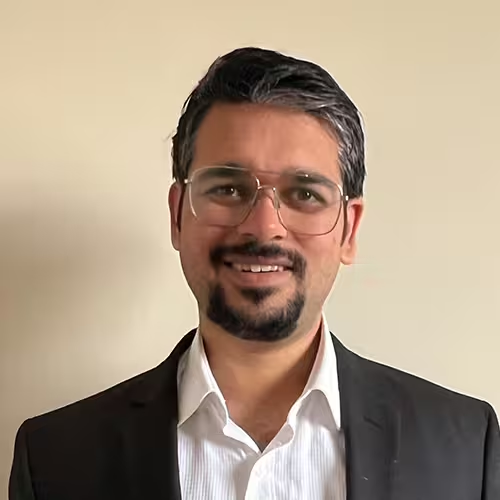
Pragmatic Steps Actions Approaches for Uncharted Journeys
Arjun Arya is Senior Environmental Engineering Lead at Philip Morris International (PMI), driving technology and stakeholder engagement to meet PMI’s Net Zero by 2040 target. His motivation to pursue climate action and sustainability comes from witnessing the devastating effects of floods and droughts on agriculture during his childhood in India.
About PMI
Philip Morris International (PMI) is one of the world’s leading tobacco companies. Led by science and innovation, and with the right regulatory encouragement and support from civil society, PMI is working to replace cigarettes with smoke-free products.
Sector: Tobacco product producer
Geography: Headquartered in the USA with global operations and multiple brands
Employees: 82,000+ globally
Website: www.pmi.com
Challenges
faced
Arjun and his team at PMI faced several hurdles while working towards the company’s ambitious sustainability goals. One major challenge has been adjusting to the “new normal” which includes the volatility of external conditions, geopolitical tensions, and disruption in global supply chains. These new realities make it necessary for business to adapt quickly, even when considering climate targets and initiatives.
Another challenge was effectively engaging a diverse range of stakeholders within PMI. Arjun recognized the need to bring together stakeholders with varying levels of experience and perspectives from the outset. This required not only combining their knowledge but also tailoring communications to different geographical and contextual backgrounds to align everyone towards a common goal.
Actions
taken
Arjun has supported decarbonization across PMI factories by employing a pragmatic approach to innovation management and applying technologies embedding renewable energy to switch from fossil sources. This method ensures that his decarbonization initiatives, especially those using novel technologies, are based on a robust plan, with clear hypotheses and measurable outcomes, enabling his team to continuously assess the effectiveness of their sustainability efforts and make necessary adjustments to stay aligned with PMI’s ambitious climate goals.
He stresses that innovation needs to remain focused – but that there is no one-size-fits-all solution when it comes to sustainability.
Communication and stakeholder engagement are also crucial elements of Arjun’s strategy. The key? Communicating the co-benefits of a specific project – for instance, how switching to on-site renewable energy helps manage energy volatility more effectively. From the outset, he has actively engaged stakeholders and various functions across the company, which has helped uncover additional opportunities for advancing sustainability projects and securing crucial buy-in from other departments.
Arjun and his team support PMI’s Zero-Carbon Technologies (ZCT) program, which aims to enhance energy efficiency and facilitate the transition to renewable technology. The ZCT program deploys large-scale renewable energy projects to increase in-house renewable energy sources and improve energy resilience across PMI’s operations. As part of this, he created an innovation pipeline to gather insights on cutting-edge technologies, such as advanced heat pumps, photovoltaics and in general electrification of heating ensuring PMI remains at the forefront of cleantech innovation.
Beyond the manufacturing sites, Arjun is also actively engaged in other value chains of PMI like agriculture and material circularity to deploy innovative solutions towards decarbonization.
Resonance
of impact
The actions taken by Arjun and his team have advanced PMI’s sustainability trajectory. Through combining new technologies and stakeholder engagement, Arjun is working towards finding innovative solutions to combating climate change while supporting PMI’s ambitious climate goals.
Arjun’s commitment to continuous learning, both within and outside the company, has broadened his perspective, often incorporating insights in unexpected places. He actively engages with various sources, including media, podcasts, and conferences, to learn from their successes and failures, and stay up-to-date on the latest innovations. One such finding inspired Arjun and his team to work on testing innovative steam-producing heat pumps for core production equipment, which could significantly reduce the company’s carbon footprint.
Through his role, he aims to address pertinent climate change-related risks and build resilience, while seizing opportunities presented by a low carbon future.
What Arjun found useful during his ESG journey
Forums and working groups such as WBCSD’s Energy Pathway have been instrumental in helping Arjun gather insights and inform PMI’s renewable energy strategy.